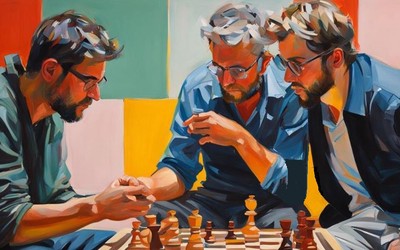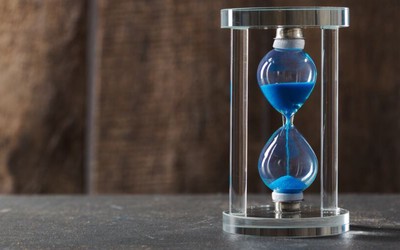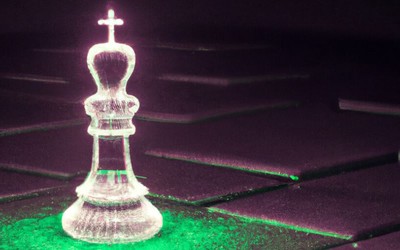
Sorrow photo created by master1305 - www.freepik.com
NOBODY WANTS TO LOSE
More than a decade ago I had the opportunity to attend as a coach to a world championship of minor categories in Chalkidiki- Greece. It was a wonderful experience, even though I had been in the profession for many years and had some local achievements, it was the first time I attended an event of this magnitude. Everything was amazing to me: The beautiful and tidy city, the stunning locations of the Porto Carras Grand Resort, a beautiful 5 star hotel, the huge gaming hall and the possibility to share with people from all over the world.Before traveling to the event I innocently believed that we could occupy the first places, I felt that we were very well prepared for this world event, we had had a high intensity training and the results at national level had made us dream of the world podium. But after the first 4 rounds, the continuous defeats "landed" me to reality and I began to enter into an uncomfortable state of frustration, something very normal in the world of sport, both athletes, parents, coaches, managers and fans have experienced one or more times in our lives. It is an emotional response that is mainly related to anger and disappointment, caused by the impossibility of satisfying or achieving something we desire.
At that time I did not know many things about human psychology and emotional intelligence, unfortunately I thought that if an athlete did not have the "adequate" performance it was because he lacked interest. How was it possible that he did not make the right moves, knowing that I had taught him so many times? It was unheard of that such basic mistakes were made; it did not fit in my head that we traveled so many kilometers to lose games so absurdly.
After each round with adverse results, I reproached the athletes for each of their mistakes, but still the situation did not improve. At the end of one of those long sessions of analysis and scolding, I was approached by Grandmaster Jaime Cuartas, one of the coaches of the Colombian team with whom I had traveled to the event. He said to me: "Faiber, when you finish there, come and have a drink in the hotel lobby, I would like to give you some advice". I felt great emotion to know what he had to tell me, since I have always admired him for his discipline and fighting spirit, qualities that have led him to become one of the best chess players in the history of our country.
After finishing the analysis of the games I quickly headed to the site to meet Jaime. I imagined that he would explain to me some new training method or some interesting opening to apply in the preparations, I felt it was something too important that could help me in my training as a coach. After ordering a couple of lemonades and sitting down on a comfortable sofa, he said to me with his characteristic way of speaking: - "Pelao, nobody wants to lose", surprised I answered him -What do you mean? I don't understand what you mean, then he continued with the following sentence: - "I don't think your students want to lose the games, much less make those mistakes, it is possible that you are wrong to scold them that way, you won't gain anything with that". Those words resonated so much in me, that to this day I remember them to the letter, they radically changed my way of seeing training, from that moment I became much more empathetic, because I understood that the main reason why an athlete does not perform in competition, despite having the technical knowledge and level to do so, is the lack of psychological preparation of both him, as well as his family and coaching staff.
The teachings of the master Cuartas make a lot of sense, several years later when I found myself studying a postgraduate degree in psychology of sport and physical activity, I could understand them even better, nobody comes to a tournament or game with the desire to lose, we always want everything to go well, well with some sad exceptions, of people who lacking ethics and sportsmanship, sell their games to the highest bidder, but anyway, that's another subject, most want to win and hopefully in the best way. For this reason it makes no sense to physically or psychologically mistreat an athlete for a bad competitive result.
Common mistakes made by coaches and family members after an adverse result in a competition
Normalizing psychological and even physical violence after an adverse result: Some athletes are stronger emotionally than others, a few are more tolerant of mistreatment than others and that doesn't mean they are better than others, they are just thresholds of resilience. But to think that someone performs better under this kind of pressure is a misperception that we have validated over the years. It is true that many have gone far this way, but it is quite possible that under other conditions they would have done even better. The other side of the coin is how many good athletes who could have been Grandmasters preferred to retire from chess to seek tranquility in other less stressful areas. This is really a waste of talent, sometimes by wanting to do more, we end up doing less. And definitely "the letter with blood does not enter well".
Losing our temper and expressing frustration out of control: No matter how emotionally prepared we are to face defeats, they will affect us to some extent, and it is important that we learn how to handle them. Athletes not only suffer from physical or psychological mistreatment, they also perceive the change in attitude of victory and defeat by their family members or coaches. After a while they begin to relate adverse outcomes to the suffering of their loved ones, which can cause them to have an extreme fear of losing. Seriously affecting their confidence and motivation.
Using the investment made in time or money as a pressure tool: It is very common that, in a moment of frustration, phrases such as: "you do not value the economic effort we are making so that you can compete" or "we lost all day in this tournament" are said to the athlete. If we really love our children or athletes, we should share the process and its stages without any conditions. The mere fact that they are practicing a sport with as many benefits as chess, is already a gain for their personal development. Moreover, in most cases, it is not that the athlete does not value the effort of his parents, what usually happens is that he still does not have enough cognitive and emotional maturity, which allows him to put into action fluently all the technical resources he has been taught. This requires many years of experience and systematized training.
To think that if we have beaten someone before we will beat them all our lives: most athletes prepare, all tournaments are different and every moment is incomparable. We must understand that sports performance is variable and even more so if we are dealing with young athletes, where anything can happen, the level you have in February is not the same as in June, if I win on Monday I can lose on Tuesday and the person I have beaten 99 games can beat me number 100.
All the negative reinforcements are accumulating in the mentality of the athlete, causing a serious insecurity that can be reflected in his style of play. Which will become more and more conservative. He will choose more solid opening repertoires, he will hardly cross the middle of the board with his pieces, he will not risk enough in the final games and the number of draws without a fight will be increasing.
Some recommendations for family members and coaches after an unfavorable result
Provide the athlete a space for emotional recovery after the adverse result: We must understand that in the first moments after a defeat, the athlete is generally not for anyone, he/she ends up immensely frustrated and just wants to let off steam. For this reason it is common to feel attacked by invasive actions such as reproaches, scolding, comments about the game and even words of consolation or pity, which may be well-intentioned actions, but for some people could become irritable in those moments of pain. It all depends on the personality of the athlete and the task of family members or coaches is to learn to know and respect their recovery mechanisms, which if worked on in a good way will improve over the years. This recovery time varies in each person, but usually after an hour, the athlete has a different attitude and will be ready to review their mistakes. Do not be angry with them for those moments of bad faces right after the game, they are really having a hard time and just need a moment of calm.
Manifest a similar attitude both in victory and defeat: It is not easy, but it is important that the athlete feels that his environment reacts the same regardless of the situation. It is not a question of not motivating him to discipline or not putting order. But it is about giving him a good emotional support, in this way we will take a weight off his shoulders and he will surely perform much better.
Normalize the adverse results and concentrate mainly on the process objectives: No matter how much level you have, you will always lose a lot of games, even the world champion loses, so it does not make sense to worry too much about winning or losing, the important thing is to grow sportingly with each game played (read the articles of the two previous editions of the magazine,the objectivity of the results of competition I and II).
Motivate work discipline and ethics: It is important to teach students to face defeats, to be ethical and not to blame anyone for their failures. We must abandon the idea of encouraging them to be the "most alive", we must educate them in respect and empathy.
Study the theories of physical and psychological development: If we investigate how the human body works and its stages of development, we can better understand the origin of their mistakes in competition. Children are not miniature adults. They go at a different pace than we do. From the first approaches to sport, discipline can be instilled in them, but we cannot demand good results. There is a time for everything.
Give the necessary importance to the psychological development of the athlete: Although the psychological component of chess performance is one of the main ones, unfortunately in most cases it is not given the necessary attention. We believe that a couple of words or a motivational talk is enough. A psychological injury requires months or even years to recover. To make an analogy with the physical component, it is as if a soccer player with a ruptured cruciate ligament in the knee were to be treated with hot water, bandaged and put back in competition the next day, which would obviously cause greater damage. Basically this is what we are doing with our students, we ourselves take care of injuring them emotionally and then we look for any tournament that appears to repeat the same dose.
I recommend, as far as possible, that all athletes have permanent support from a specialist on the subject and if this is not possible, at least that both family members and coaches are trained in these issues, so that in this way, preventive and healthy actions can be implemented from the base.
More blog posts by TheBigPhoenix

Fair play in chess
Chess is a wonderful sport that requires the development of cognitive, emotional, social and physica…
LAS MODALIDADES RÁPIDAS COMO HERRAMIENTA DE ENTRENAMIENTO EN EL AJEDREZ
Desde hace ya varios años, las modalidades rápida y relámpago hacen parte de los eventos oficiales d…
LAS PLATAFORMAS ONLINE COMO HERRAMIENTAS PARA EL CONTROL DEL ENTRENAMIENTO
Está claro que existen diferencias importantes entre el ajedrez online y el ajedrez presencial: La p…
